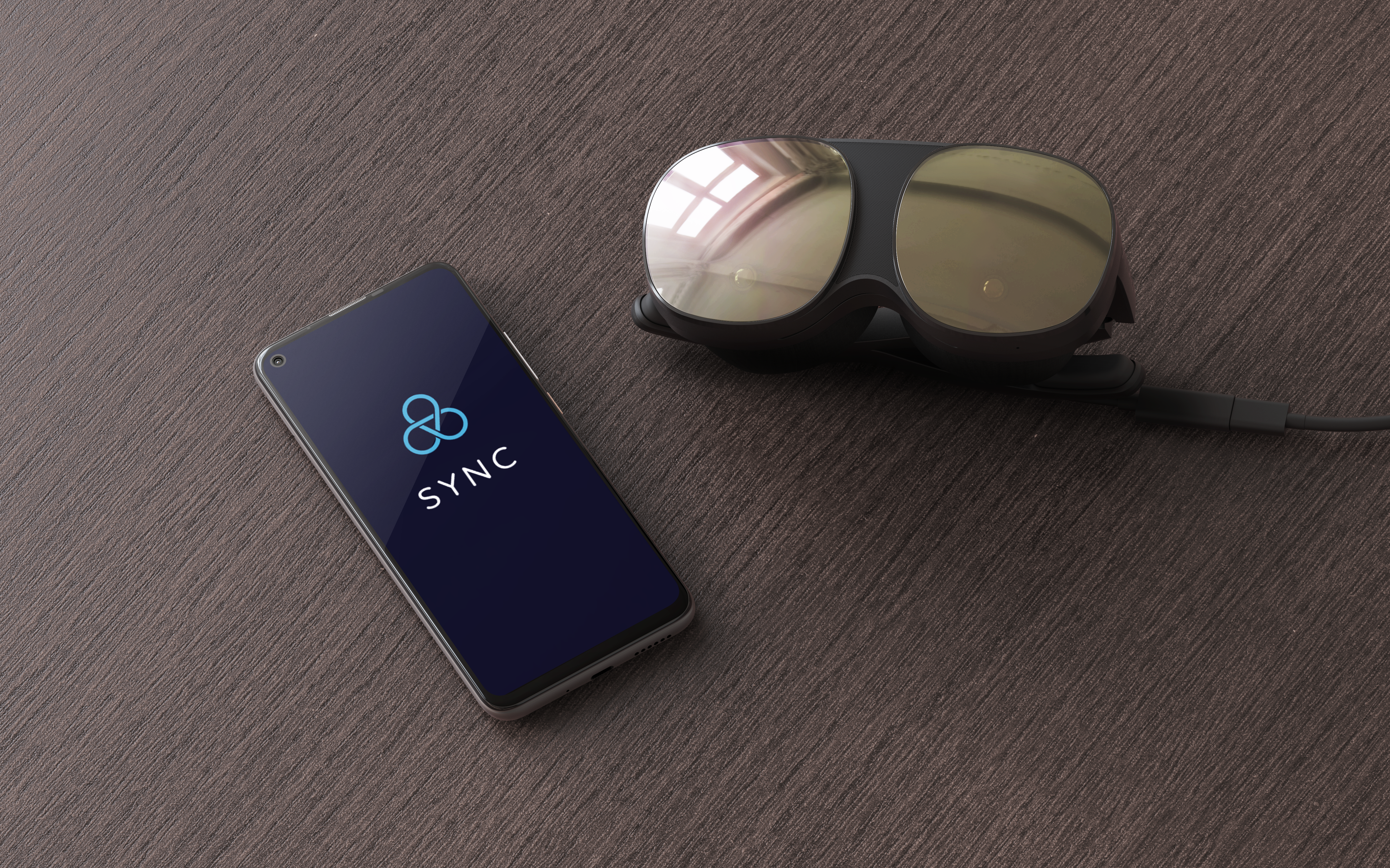Today, HTC has revealed their latest consumer-focused headset, the $499 Vive Flow. It’s designed for portability with a compact design and 189 gram weight, though there are some big caveats, which I’ll get to later.
I had the chance to demo the headset in-person in San Francisco and my first impression of the device was around just how compact and well-designed the hardware appeared. HTC is embracing several hardware features designed around miniaturization that we haven’t seen in other headsets. The “pancake” optics are thinner than what you’d see in any other commercially available headset, and adjustable diopter lenses allow users to correct their vision in-headset and potentially avoid needing to use glasses with the Flow. The headset overall hosts a lightweight design more akin to the Magic Leap One than existing standalone headsets.
Other key details include the headset’s 1.6K per eye resolution (they didn’t disclose exact resolution) that run at 75 frames-per-second, and what HTC claims is a 100-degree field-of-view, though your mileage may vary. The smaller lenses do not have IPD adjustment, meaning anyone using the outer or inner bounds of an IPD adjustable headset will probably be getting a smaller field-of-view and a less comfortable experience. The bug-eye lenses on the front of the device hide pass-through cameras, though I wasn’t able to demo any content that showcased them. Another interesting feature is a fan inside the headset which draws hot air from your face and eyes, something HTC claims makes longer sessions more comfortable. Speaking of comfort, I was pleasantly surprised by the Flow’s dual-hinge arms (which have near-ear speakers built-in to them) and how well they managed to secure the headset compared to the straps most headsets sport.

During my demo, I was generally pleased by just how well-designed so many elements of the device itself were. All of which is to say, it’s clear that HTC actually innovated in the hardware design here, which can’t be said for their last consumer release, the 2019 Vive Cosmos, which was generally panned by reviewers as an inferior Oculus Quest competitor. But achieving the Flow’s form factor clearly required some fairly controversial choices, ones that frankly are likely going to leave a pretty slim niche of potential buyers for this headset, which costs $200 more than the larger, but more full-featured Oculus Quest 2.
For one, the $499 device doesn’t have an onboard battery — in order to use the headset it has to be connected to a power source, be that an external battery charger or your phone itself. The headset is also sporting a last generation Qualcomm XR1 processor onboard, meaning most content designed to take full advantage of competing headsets like the Quest 2 won’t support the Vive Flow. Most perplexingly, the Vive Flow does not include dedicated controllers or onboard input, instead relying on an accompanying phone app which gives users basic abilities to control content inside the headset.
Those tradeoffs aren’t easy ones to justify, and HTC prioritizing the form factor so heavily over usability leaves them in a tough spot. This wasn’t a full review period, but after an hour chatting with the team and playing around with the device, I got a pretty good feel for what the Vive Flow is; what I didn’t grasp as much was who this device was built for.
Without robust gaming support, HTC is pitching the Flow as a wellness and mindfulness device, detailing the headset’s support for VR meditation apps including MyndVR and Tripp. Spokespeople for HTC detailed how the headset’s size makes it ideal for whipping out for a quick meditation session, but given that most of these meditation apps are still quite early in their development, and figuring out how to onboard paying customers themselves, I’m doubtful that the market for VR meditation is big enough for a dedicated $499 device. I find it much easier to believe that this headset will have pretty significant overlap with Facebook’s discontinued Oculus Go, which many people used primarily to stream videos, something that users can also do on the Flow by connecting and mirroring their Android phone display inside the app and using normal mobile apps like Netflix. It’s not the most futuristic use and doesn’t leverage the headset’s positional tracking at all, but it’s probably the stickiest use case for a lightweight device that is likely more comfortable to wear for several hours than heavier competing headsets.

It’s unfortunate that the headset has such a tight focus, because many VR enthusiasts are looking for a full-featured standalone headset option that isn’t made by Facebook. Generally, HTC has been in a pretty rough VR market position since Facebook began aggressively slashing the prices of their headsets in a bid to bring more consumers into the fold. While Facebook can afford to sell hardware at a loss for the glory of eventual market domination, HTC doesn’t have that luxury as a much smaller company. It’s also apparent that Facebook’s billions of dollars in investment have led to more well-rounded products with software that feels years ahead of what HTC is shipping on the Flow.
HTC has been in the VR game for a long time, and it’s clear from their hardware design on the Vive Flow that they’re ready to be seen as a leading force of VR innovation. There are some big tradeoffs to this $499 headset, but with its bold design and shrunken size, it’s far from forgettable, which is more than can be said about most VR devices. The headset goes up for preorder tomorrow, and will be shipping early next month.
Psychedelic VR meditation startup Tripp raises $11 million Series A































Comment